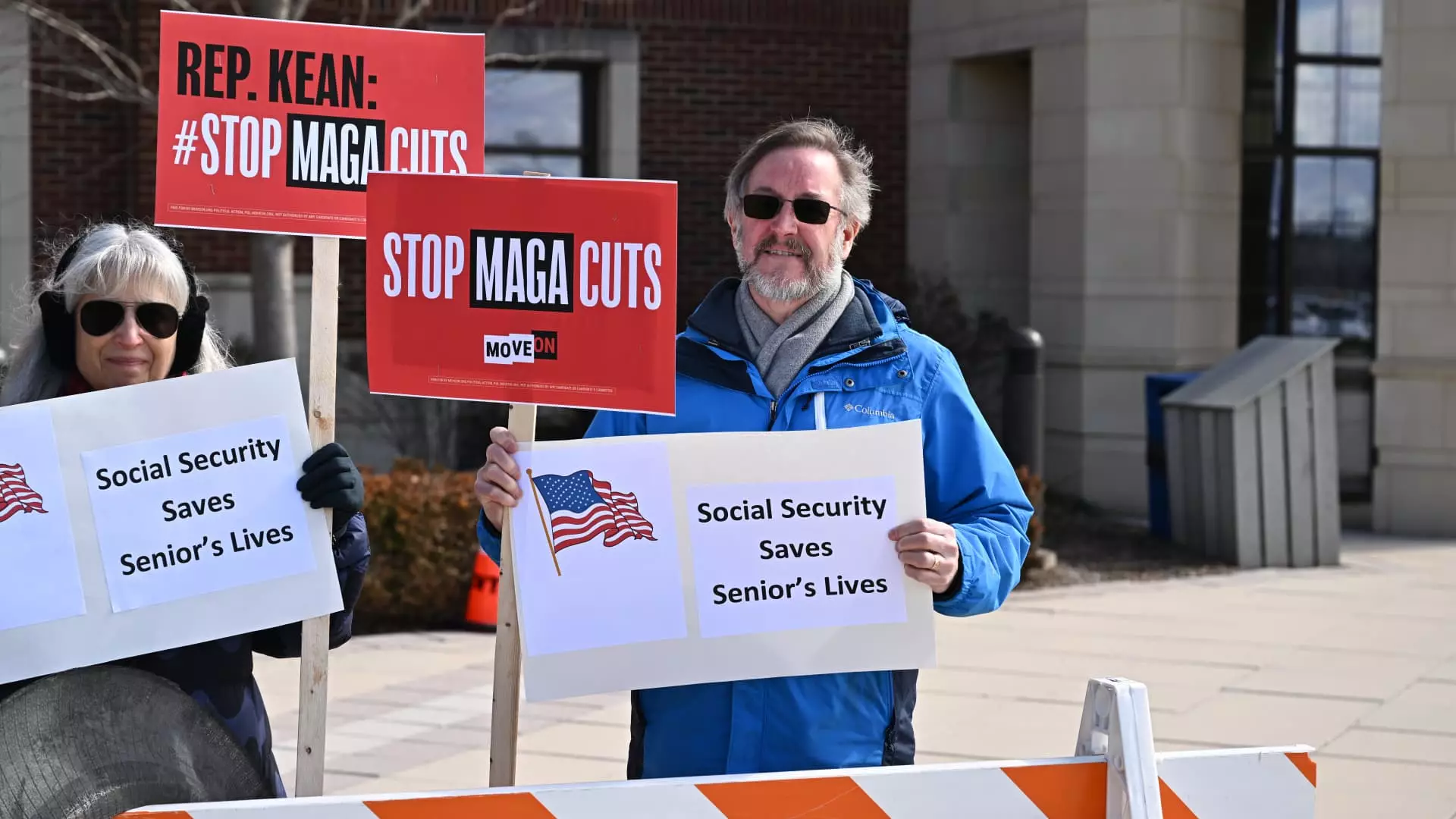As the upcoming elections approach, voters are not just selecting political parties but are also unknowingly casting a vote on the future of Social Security. The program is projected to pay out an astonishing $1.5 trillion in benefits to almost 68 million Americans monthly by 2024. Alarmingly, more than half of boomers set to reach 65 by 2030 are expected to rely heavily on Social Security for their retirement income. However, the trust funds supporting Social Security are anticipated to deplete in the next decade, leading to a significant across-the-board benefit reduction of at least 20% unless reforms occur promptly.
Democratic legislators such as Rep. John Larson have been vocal about the inadequacy of current benefits. Larson emphasized in an interview that Social Security benefits are essential for many Americans, with over 5 million individuals receiving monthly checks below the federal poverty line. The congressman argued that benefits have not been adjusted for over 50 years, dating back to the last significant reforms in 1983. These reforms saw changes like a gradual increase in retirement age, taxing of benefit income, and reduced benefits for certain public employees with pensions. Larson has been pushing for the Social Security 2100 bill, which aims to boost benefits for all recipients by removing the payroll tax cap for individuals earning over $400,000 annually.
Despite considerable support for initiatives like the Social Security 2100 bill and the Social Security Fairness Act, progress has been slow due to political gridlock. Larson’s bill, supported by 184 Democratic co-sponsors, has never made it to a House vote, highlighting the challenges faced in enacting reforms. On the other side, the Republican Study Committee has proposed raising the retirement age and cutting federal spending, drawing criticism from Democrats for potential cuts to Social Security benefits. The fear of closed-door commissions implementing significant changes without proper discussion has caused concern among advocates like Nancy Altman, president of Social Security Works.
With both parties at odds over the future of Social Security, the call for bipartisan cooperation has become crucial. Rep. Drew Ferguson emphasized the need for open dialogue during a recent hearing, hinting at the necessity for lawmakers to find common ground on tax increases and benefit adjustments. Experts like Charles Blahous have expressed skepticism about either party unilaterally resolving the issue due to the magnitude of the shortfall. Blahous suggests that adjustments to benefit formulas and cost-of-living allowances are necessary to address the growing challenges ahead.
Rep. Larson remains undeterred in his mission to enhance Social Security benefits, believing that increasing benefits and taxing the wealthy accordingly will receive widespread support. Advocates argue that expanding benefits and ensuring fair contributions from high-income individuals are critical steps in securing the future of the beloved program. The nation awaits action from policymakers to safeguard the financial well-being of millions of retirees relying on Social Security for their livelihood.
The future of Social Security is at a pivotal moment, with voters indirectly influencing the direction of the program through their electoral choices. The urgency for reforms to secure benefits for future generations cannot be overstated, requiring politicians to rise above partisan differences and prioritize the well-being of millions of Americans dependent on Social Security.

